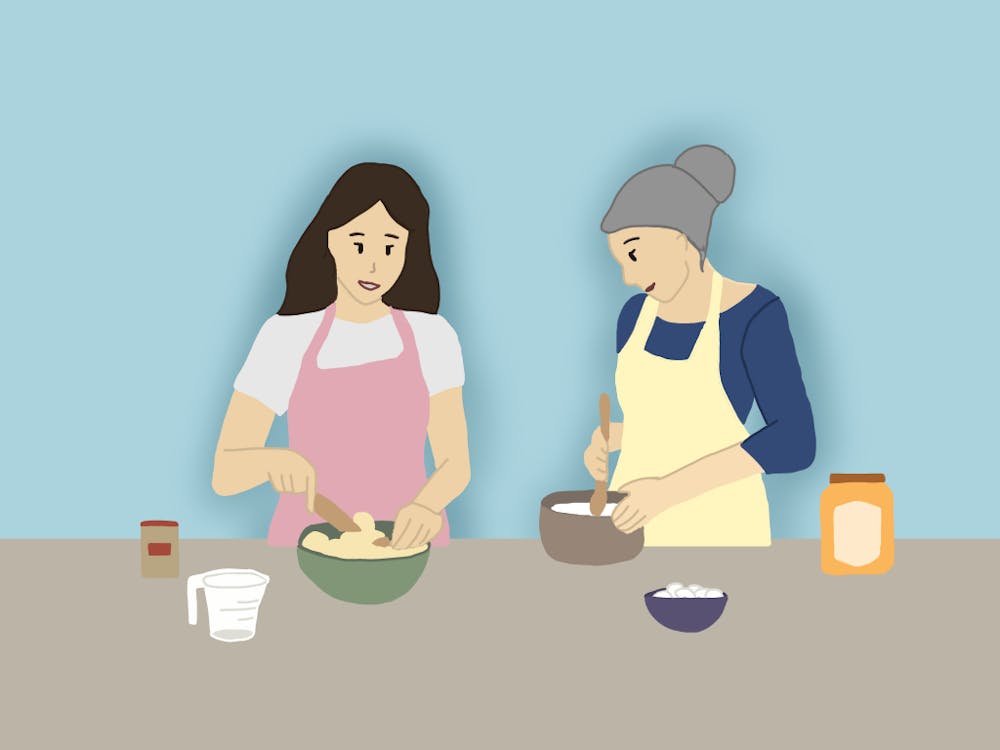In Japan, there is a famous saying: “Mottainai,” which effectively means “don’t be wasteful.” It is used in a variety of settings, but largely in terms of garbage and food, in a spirit comparable to the “go green” movement in America.
I came across the concept of mottainai while eating at a ramen shop with some friends. Portion sizes in Japan are shockingly large — sometimes even larger than in America. With no earthly way I could finish my serving, I asked my friend, “Can they give me a box or some kind of take-out container if I don’t finish?”
“No — and actually, they might be a little offended,” she said. “Since you are a foreigner, it is probably okay, but if a Japanese person doesn’t finish her food, it is pretty rude.”
“So I can’t take it home? They will just throw it away?”
“That is why you have to finish it,” my wise friend said. “Mottainai.”
My first thought was, “How wasteful! The restaurant gives these massive portion sizes but refuses to give me a container to finish the food later.”
Yet the restaurant worker’s first thought would probably be, “How wasteful! She did not finish her food even though she knew it would go to waste!”
Neither the United States nor Japan wants to be wasteful as a nation — but the burden of responsibility is different between countries.
In America, it seems the responsibility to conserve lies largely with corporations. Restaurants are the ones who make sure customers have a box to take their food home. In Japan, the responsibility lies with the individual. People are expected to always finish what is on their plate — and sometimes, what is on their friend’s plate, if she cannot finish her food alone.
Apparently, mottainai is so powerful it even trumps health concerns.
One of my bosses — an American — told me a story about an all-you-can-eat buffet he went to with his wife and some Japanese friends. Unable to finish his meal after taking too much food, my boss’ friends — worried they would all look wasteful — snuck back in the buffet line and put the food back while the workers were not looking.
In the United States, meanwhile, the sentiment behind mottainai seems more institutionalized. We can throw everything from papers to bottles to cans into a giant recycling bin and leave the rest of the work to a recycling company.
In Japan, reusing is emphasized, as opposed to recycling. At the university where I am interning, we do not recycle paper at all. Instead, we keep a bin of paper only used on one side so we can use the other side before we throw it away.
To recycle in Japan, you have to painstakingly sort materials before turning them in, and the types of items which can be recycled are much more limited. Additionally, there is no deposit system to receive money per bottle turned in like there is in some places in America. In Japan, you are not supposed to need incentive to recycle — you are just supposed to do it.
No one wants to be wasteful. Unfortunately, America seems to have a reputation for being wasteful abroad — so much that when I explain the institutionalized “go green” movements to Japanese students, they are always very surprised.
On my end, it is easy to see the differences and think Japan is being wasteful, when in reality, they are further along in certain ways than the United States. Internationally, we have still got a lot to learn from one another. In the United States, we have “reduce, reuse, recycle,” but we often forget the reduce or reuse parts. If we can learn from one another and take the best aspects of both “mottainai” and “go green,” however, we may be able to move toward a less wasteful lifestyle.






